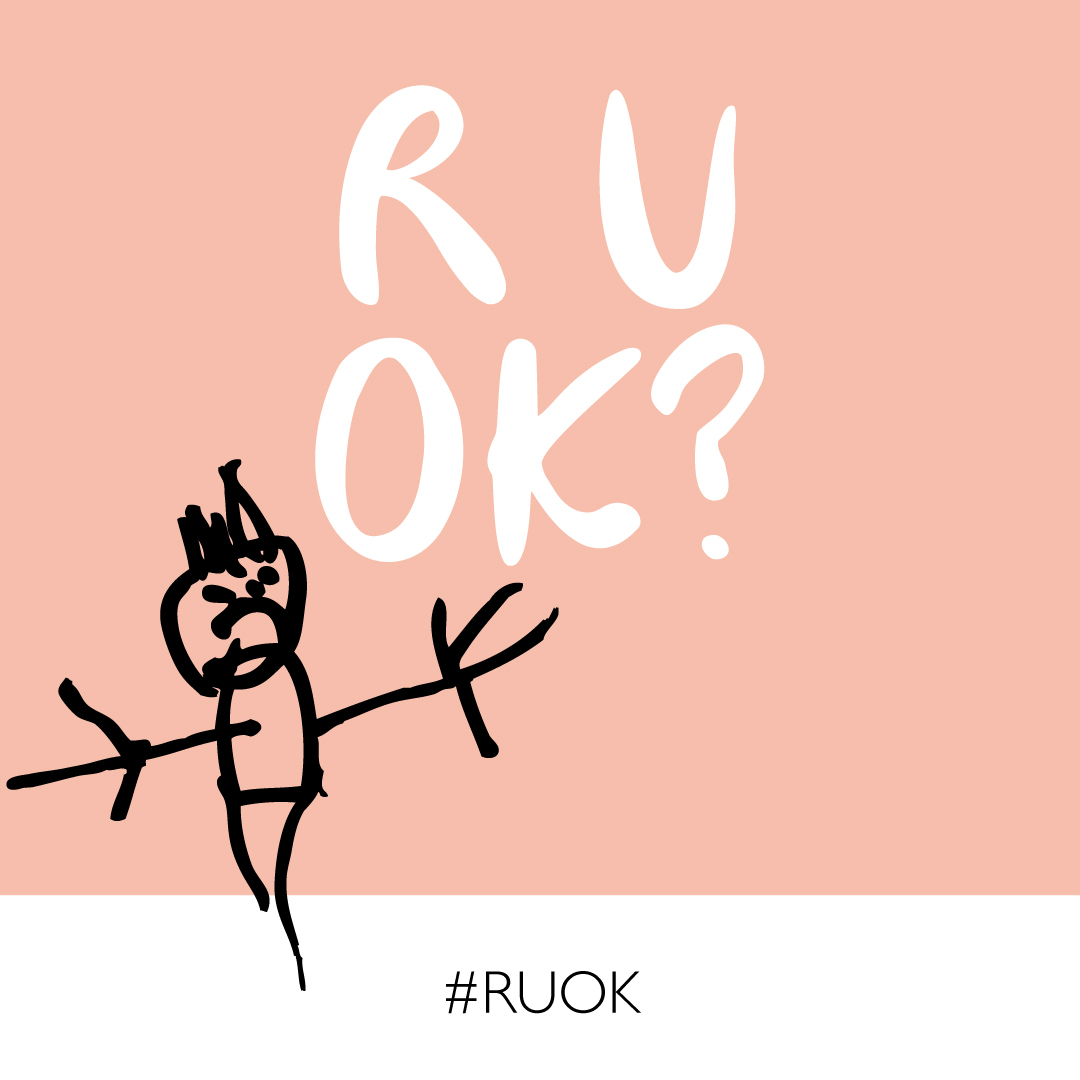Asking your kids R U OK?

R U OK? Day
I am a passionate believer in the ‘RU OK?’ movement. It is an essential reminder for us to ‘start meaningful conversations’.
I totally agree that we need to care for the people around us and meaningfully connect with each other.
I really want to share what it reminds me to do.
Have ‘meaningful conversations’ with our kids, no matter how young.
I’m not usually one to blurt out my life story for all; however, this is way too important an issue to be shy about.
I suffer from mental health issues and so does my husband and yes we have our independent demons to deal with, however we share what we consider a HUGE worry.
We know mental health illnesses can be hereditary and we have a 4 year old son.
We have talked a lot about how to recognise if our son shows any signs of sharing our mental illness so that we can obviously put measures in place to manage the effects.
This got me thinking. All of the strategies we have been discussing are things that we, as parents, should do regardless.
We should ask our kids ‘R U OK?’
It’s never too early to open up the lines of communication and encourage your little ones to chat about their feelings, fears, embarrassment, guilt; (the hard things).
If these conversations are a way of life to our kids then hopefully when they are older the ‘difficult conversations’ wont be so difficult.
..
Here are a couple of suggestions that have worked for us (remember we are talking to a 4 year old)…
> Asking ‘R U OK?’ is too broad of a question for younger kids, you need to break it down.
At the end of every day we say our happiest part of the day and we also ask if anyone had a ‘sad’ or ‘embarrassing’ or ‘shy’ part of the day.
> If something is mentioned we walk each other through what happened – make sure you listen and don’t interrupt until your little one is finished.
> You have a turn too, acknowledge some part of your day that was uncomfortable, but obviously make it kid friendly so they can understand.
Not the time to talk work place politics!
It may be that you spilt coffee on your self and was ‘embarrassed ‘ that you looked messy going to an important meeting.
> Ask these questions in the same place every night. A place without distractions (so clearly not with the TV on in the background). In our case it’s just after story time, whilst lying down in bed.
> Show compassion for your child’s sad, embarrassing or shy part of the day.
> What may seem silly to you can be a huge deal to them.
> Work with them to come up with suggestions of how to manage the situation next time.



